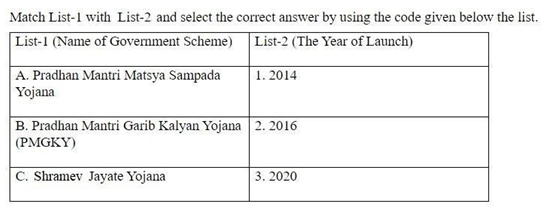Question
How has Anti-defection law impacted the dynamics of the
Indian Political system? 1. Has provided for greater stability in the respective legislatures by checking the propensity of legislators to change parties. 2. Has completely rooted out party hopping from Indian politics. 3. Has encouraged the legislators’ right to dissent and freedom of conscience. 4. Has given clear-cut constitutional recognition to the existence of political parties. Select the correct answer using the codes given below:Solution
● Statement 1 and 4 are correct: The law was supposed to and has certainly been able to curb the evil of defection to a great extent. It has reduced corruption as well as nondevelopmental expenditure incurred on a regular election. Political instability caused by frequent and unholy change of allegiance on the part of the legislators of our country has been contained to a very great extent. Moreover, it gives, for the first time, a clear-cut constitutional recognition to the existence of political parties. ● Statement 2 is incorrect: Despite the positives, a very alarming trend of legislators defecting in groups to another party in search of greener pastures is visible. The recent examples of defection in state Assemblies (Goa, Karnataka etc.) and even in Rajya Sabha bear this out. This only shows that the law needs a relook in order to plug the loopholes it obviously has. ● Statement 3 is incorrect: The anti-defection law does not make a differentiation between dissent and defection. It curbs the legislator’s right to dissent and freedom of conscience. It clearly puts party bossism on a pedestal and sanctions tyranny of the party in the name of the party discipline.
Who heads the Monetary Policy committee formed by the Central Government?
In the context of a buffer in memory area or disk, spool refers to:
Which of the following books is an autobiography of the Indian politician LK Advani?

Harihara and Bukka established an independent state in Karnataka and established the capital city Vijayanagar on the banks of river _____________ in 1336.
In November 2020, ___________ has set a record of becoming the world’s fastest piano player ever.
Nobel Prize is announced at an international level which is administered by the Nobel Foundation in Stockholm, Sweden. Recently Nobel Prize winners for ...
Solve the following:
1800 ÷ (11 × 24 ÷ 8 × 3 – 69)²
What is the maximum age for a member of a joint public service commission to hold his/her office as per the Constitution of India?
The Third Battle of Panipat between the Marathas and Ahmad Shah Durrani , the ruler of Afghanistan was fought in the year:
Relevant for Exams:


